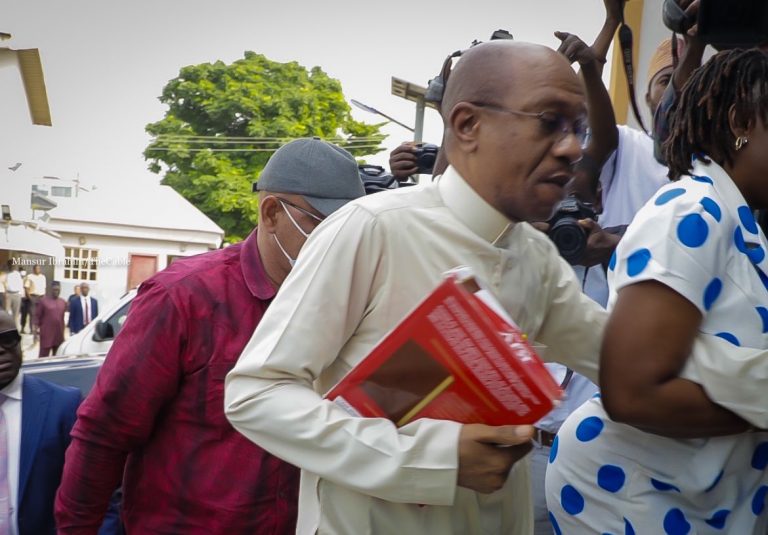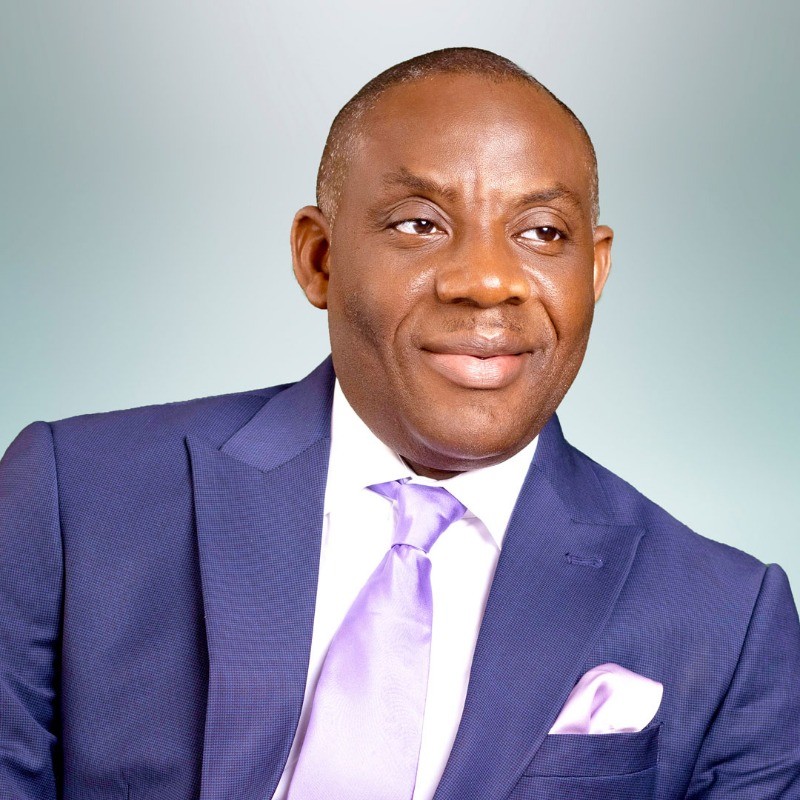..only 17% of ECOWAS population getting social protection benefits
By Joyce Remi-Babayeju
The Minister for Humanitarian and Poverty Alleviation, Dr..Betta Edu is now the Chairman of the ECOWAS Inter-Ministerial Committee on Social Protection in West Africa Sub- Region.
Edu clinched the new office following the approval of the Chairman of ECOWAS Heads of State and and Nigeria’s President,Bola Ahmed Tinubu.
She urged Private sectors and development Partners to be part of the regional social protection framework.
Speaking in Banjul, Gambia, during the closing Dr. Edu urged member states to adopt the social protection framework plan, adding that full implementation was key to overcoming humanitarian and poverty challenges in West Africa.
She also emphasized on the need for member countries to work towards achieving maximum social protection in the sub-region.
Edu explained that is expedite to expand the long-term effects of the ECOWAS Commission with the support of partners in birthing the social protection instruments in the sub-sub-region.
According to her, “Social Protection is a fundamental human right and should not be regarded as a privilege. It is a social and economic necessity that has proven to be a stabilizer in times of crises and shock, and it is meant to be provided throughout life circle.”
The humanitarian ministry minister noted that the COVID-19 pandemic exposed the yawning gaps in the social protection of the world, particularly in the West African sub-region, which has one of the lowest social protections in the continent.
Furthermore, Records in Nigeria have shown that the coverage of Social Protection in the ECOWAS region is the lowest in the continent with an average of about 17% of the population receiving at least one form of social protection benefits and spending is equally low as studies show that as little as 1% of the GDP of member States is spent on social protection benefits apart from health considered a far cry in comparison to international standards which should not be acceptable in West Africa.
Citing Nigeria as an example, the Minister stated that member states were making giant strides towards addressing issues of social protection at the national level by developing policies and structures/programs to change the narratives.
She said Nigeria is presently implementing one of the highest social protection interventions that covers 15 million households and, by extension, 61 million individuals through conditional cash transfers. This she said was the first of its magnitude and coverage in Africa by President Bola Tinubu, who is also the Chairman of ECOWAS, showing leadership in social protection within the region.
“Nigeria has a National Policy on Social Protection developed and other ancillary policies that will facilitate its operationalization, like the Cash and Voucher Assistance policy in Humanitarian context have equally been developed to guide actors in providing cash transfer assistance to the persons of concern in humanitarian setting.”
“Also in terms of structures, we have Several Agencies and parastatals dedicated to providing various social protection assistance to different categories of the population of Nigeria to lift millions out of poverty through different Social Investment and intervention programs under the watch of the ministry of humanitarian Affairs and poverty alleviation.”
“All interventions including humanitarian interventions are now redesigned through the lenses of the Humanitarian- Development-Peace nexus to ensure sustainable response.”
Most importantly, a Humanitarian and Poverty Alleviation Trust Fund has equally been approved by the Federal Executive Council to ensure the mobilization of resources for social protection interventions, she said.
Edu explained that the Social Protection Framework for West Africa was intended to provide a broad set of guidelines and principles to ECOWAS and the Member States in the design and delivery of social protection interventions.
She was of the view that the effort was driven by the principle that the provision of comprehensive and adequate social protection would contribute to the improvement in the quality of life of the citizenry.
“In the light of the region’s exposure to a wide range of covariate shocks and common cross-border socio-economic challenges, the Framework aims at fostering higher levels of regional collaboration to broaden existing social protection systems and programs through a more coherent and effective approach to poverty reduction (SDG 1) and food and nutrition insecurity eradication (SDG 2) END HUNGER”, Dr. Edu emphasized.
The Framework, according to the Nigerian Minister, contributes to the achievement of several social protection-related SDG targets, especially SDG target 1.3, which seeks to implement nationally appropriate social protection systems and measures for all.
Also, speaking at the Closing Ceremony of the ECOWAS Regional Session, the Vice President of the Gambia, Muhammad Jallow, commended the commitment of the member states on social protection in the region.
“The framework seeks to address endemic issues such as financing, coverage, climate risk, and informality in our economies amongst others.
“One of the fundamental challenges in our region is that project-based social protection is ad hoc and unpredictable. As a region, we must move to mainstream social protection into our annual budgets.”
The theme for the “The Gambia international Social Protection conference held earlier this month was “Accelerating Financing for social protection to increase coverage and reach. ”
“I am particularly pleased to note that the experts have dedicated a similar objective “ Improve fiscal space for comprehensive and inclusive social protection, ” he added.
The Closing Ceremony was attended by ministers in charge of social protection in eleven countries and the Nigeria’s Minister of Humanitarian Affairs and Poverty Alleviation, with regional heads of UNICEF, IFAO, WFP among others.





